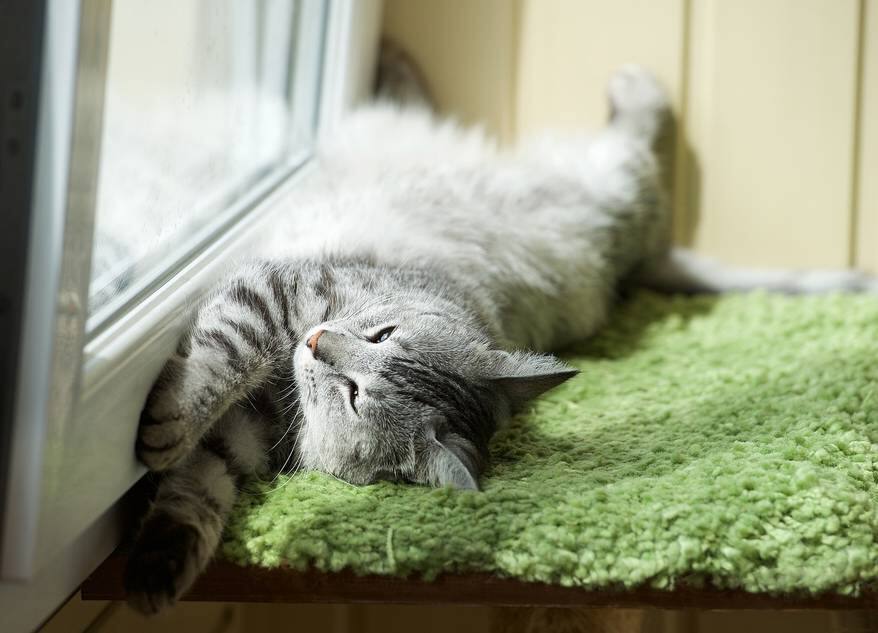
-
Find the right food for your pet
Take this quiz to see which food may be the best for your furry friend.
Find the right food for your pet
Take this quiz to see which food may be the best for your furry friend.
Featured products
 Adult Perfect Weight & Joint Support Chicken Recipe Dry Dog Food
Adult Perfect Weight & Joint Support Chicken Recipe Dry Dog FoodThis weight management and mobility support dog food was created with Hill’s unique understanding of the biology of overweight dogs.
Shop Now Adult 7+ Perfect Digestion Chicken, Whole Oats & Brown Rice Recipe Dog Food
Adult 7+ Perfect Digestion Chicken, Whole Oats & Brown Rice Recipe Dog FoodScience Diet's breakthrough nutrition supports ultimate digestive well-being & healthy microbiome for dogs age 7+
Shop Now Adult 7+ No Corn, Wheat, Soy Chicken & Brown Rice Dog Food
Adult 7+ No Corn, Wheat, Soy Chicken & Brown Rice Dog FoodSupports energy level and beautiful coat in mature dogs
Shop NowFeatured products
 Perfect Weight Salmon & Vegetable Canned Cat Food
Perfect Weight Salmon & Vegetable Canned Cat FoodOver 70% of cats lost weight within 10 weeks when fed this nutrition
Shop Now Adult Perfect Digestion Chicken, Barley & Whole Oats Recipe Cat Food
Adult Perfect Digestion Chicken, Barley & Whole Oats Recipe Cat FoodScience Diet's breakthrough nutrition supports ultimate digestive well-being & healthy microbiome
Shop Now Adult Savory Chicken Entrée Cat Food
Adult Savory Chicken Entrée Cat FoodPrecisely balanced nutrition with the delicious taste of savory minced chicken to help fuel the energy needs of cats during the prime of their life
Shop Now -
Dog
- Dog Tips & Articles
-
Health Category
- Weight
- Food & Environmental Sensitivities
- Urinary
- Digestive
- Joint
- Kidney
-
Life Stage
- Puppy Nutrition
- Adult Nutrition
- Senior Nutrition
Cat
- Cat Tips & Articles
-
Health Category
- Weight
- Skin & Food Sensitivities
- Urinary
- Digestive
- Kidney
-
Life Stage
- Kitten Nutrition
- Adult Nutrition
Featured articles
 Pet Food Storage Tips
Pet Food Storage TipsDiscover how and where to store your dry, as well as canned, dog and cat food. Learn how to find the "best before" dates on all Hill's pet food packaging.
Read More Water
WaterDiscover why water is the most important nutrient for your dog or cat to live a healthy life. Find out how much water your pet should consume each day.
Read More The Incredible Science Behind Your Pet's Microbiome
The Incredible Science Behind Your Pet's MicrobiomeLearn what a pet's microbiome is, how it contributes to your pet's gut & overall health, and why nutrition is important in maintaining healthy microbiomes.
Read More -
Find the right food for your pet
Find the right food for your pet


You sweat. Your dog pants. But does your cat sweat? And can she pant too? What does she do when she needs cool off?
Do Cats Sweat?
Cats, known for their cool-as-a-cucumber attitude, do, in fact, sweat. You just probably don't see it.
Cats have sweat glands, but most are covered by fur. That means their effects are minimized, but the exception is their paws. Your cat's paws have sweat glands and you might occasionally see proof of that if your cat leaves behind damp footprints, explains Cat Health.
So, do cats sweat? Kind of.
Because cat sweat glands aren't that effective, cats have other ways of cooling off. They bathe themselves, because when their saliva evaporates it cools them down—kind of like taking a lukewarm bath on a hot day. Cats also like to rest in cool places. Spreading their bodies out on a cool surface — like a tiled floor or an empty bathtub — keeps them comfortable. Many cats also shed their undercoats in the warmer months. If your cat seems to be shedding more than usual, you can help by grooming her regularly. It's a dual benefit: grooming your cat is a bonding activity, and you'll cut down on the hair around your house.

While cats have all those ways to stay cool, that doesn't mean they can't become overheated. A cat's normal temperature is about 101 degrees. When it reaches 104 degrees, heatstroke is a possibility.
However, it's pretty unusual for a cat to suffer heatstroke. After all, as Dr. Jason Nicholas notes on Preventive Vet, cats don't typically ride in cars and don't go outside for long periods of intense play or exercise with their owners — common scenarios in which dogs can become dangerously overheated. But, he notes, there are instances of cats suffering heatstroke. Dr. Nicholas writes that some scenarios in which you should consider heatstroke as a possibility include:
- A cat gets trapped in a clothes dryer
- A cat gets trapped in a shed or other structure without air-flow during a hot period
- A cat left confined without ready access to water and shade
- A cat left in a hot car for a prolonged period of time


Tasty Tips
Is Your Cat Overheated?
One common sign a cat is overheated is panting. While common in dogs, of course, cats aren't your everyday panters. They will typically pant in cases of overheating, stress, respiratory distress or some secondary illness and biochemical change. Just like with a dog, cat panting allows heat to escape the body through evaporation.
Dr. Jane Brunt, a veterinarian at the Cat Hospital at Towson in Baltimore, tells Catster that other signs a cat might be overheated include:
- Salivating or drooling excessively
- Vomiting
- Diarrhea
- Bright red gums, tongue, or mouth
- Trembling
- Seizures
- Wobbly walking or disorientation
If you notice your cat is panting and are concerned your cat is overheated or is suffering heat stroke, you should take immediate action to cool her off. Move her out of the sun and, if you can, bring her to a cooler area. Make sure she has cool water to drink by adding an ice cube or two to her bowl. You can also wet her fur with a damp, cold cloth, or wrap a frozen water bottle in a towel and place it beside where she is resting.
If you live in a warmer climate and your cat can't escape the heat in your home for whatever reason (i.e., your air conditioner goes out), you might think about having a backup plan ready to make sure she stays cool during the day when you can't be there to care for her. This could include having her stay with a friend or family or kenneling her at the vet. While cats don't generally love the change of scenery, you'll be thankful that you have an upset kitty rather than a sick one.
If you're concerned your cat is overheated, contact your vet as soon as possible. Let the staff know why you think your cat is suffering from overheating, what time you noticed the symptoms, and what you've done to cool her off. They can let you know what further actions to take and if you should bring her in for care.


Kara Murphy is a freelance writer and pet parent who lives in Erie, Pa. She has a goldendoodle named Maddie.
Related products

Precisely balanced nutrition with the delicious taste of savory minced chicken to help fuel the energy needs of cats during the prime of their life

Science Diet's breakthrough nutrition supports ultimate digestive well-being & healthy microbiome

Over 70% of cats lost weight within 10 weeks when fed this nutrition

Feline Adult Perfect Weight Variety Pack
Related articles

How do you get a cat to lose weight? Learn all about cat foods for weight loss, including how to choose weight control cat food and exercise tips.

Discover the benefits of Hill's line of kitten foods and how they provide complete and balance nutrition for growing kittens.

Discover how to identify cat sensitive skin and what you can do to help your cat thrive from head to paw.

Discover which cat toys games your feline friend might like, and how they are great sources of exercise. Explore our library of articles to learn more.

Put your cat on a diet without them knowing
Our low calorie formula helps you control your cat's weight. It's packed with high-quality protein for building lean muscles, and made with purposeful ingredients for a flavorful, nutritious meal. Clinically proven antioxidants, Vitamin C+E, help promote a healthy immune system.
Put your cat on a diet without them knowing
Our low calorie formula helps you control your cat's weight. It's packed with high-quality protein for building lean muscles, and made with purposeful ingredients for a flavorful, nutritious meal. Clinically proven antioxidants, Vitamin C+E, help promote a healthy immune system.

